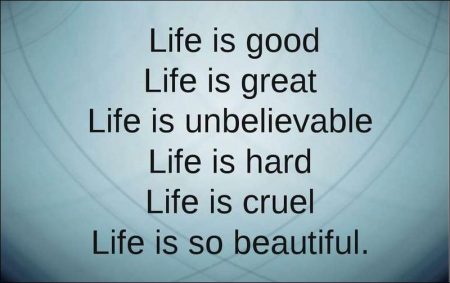You can’t find the meaning to life without first accepting that life is meaningless.
One of the more daunting things a person can experience is a little something called a “creative block.” It applies to any craft or endeavor we can imagine, but we hear about it most often in the domain of writing.
Our linguistic overlords at Merriam-Webster define it as such:
writer’s block: a psychological inhibition preventing a writer from proceeding with a piece. It’s a pretty straightforward definition but misses one crucial aspect, which I’ve added below:
I recently found myself challenged by this “psychological inhibition”: I was staring hopelessly into a digital blank page, my heart rate elevating with each blink of the cursor. I knew there was some idea or topic floating around in my mind, it just wouldn’t surface enough for me to grasp it and expand upon it in a fluid way. I was immensely frustrated and found myself flailing in a sea of despair, trying desperately to latch onto anything that came to mind.
But then I had a realization that made everything seem ridiculous. A few days ago, I was in California, packing a suitcase for an extended trip abroad. And within the span of mere hours, through the magic of aviation and logistical ingenuity, I was sitting in a cafe in Korea — halfway across the world — stressing about the fact that I couldn’t get a thought out into a word processor. Decades of human collaboration and technological progress have afforded me the luxury to log onto this cafe’s WiFi network, only for me to flip out about the fact that I can’t think of anything to write.
In the grand scheme of things, many of the endeavors we worry about can seem just as absurd. In the same way we laugh at a dog’s purposeful quest to chase its own tail, the cosmos seem to laugh at our desire to work so hard in pursuit of yet another promotion, ridiculing us for the time spent researching which new iPad to buy, and shaking its head at how much we care about the response to our Instagram stories.
The weird thing is that we can’t help but find meaning in the things that we do — even those we rightfully see as meaningless in the end. Yes, I can understand that being frustrated by writer’s block is pretty ridiculous when the world at large is undergoing some pretty serious challenges, but I simply can’t help but deem my little writing project the most important thing for me at that moment.
This asymmetry between our need for meaning and the world’s refusal to entertain it is known as the Absurd, a paradox philosopher Thomas Nagel addresses in his essay of the same name. In it, he delves deep into what causes this unique feeling of meaninglessness we get when we take a moment to examine what we deem important in our lives.
Visits: 107




